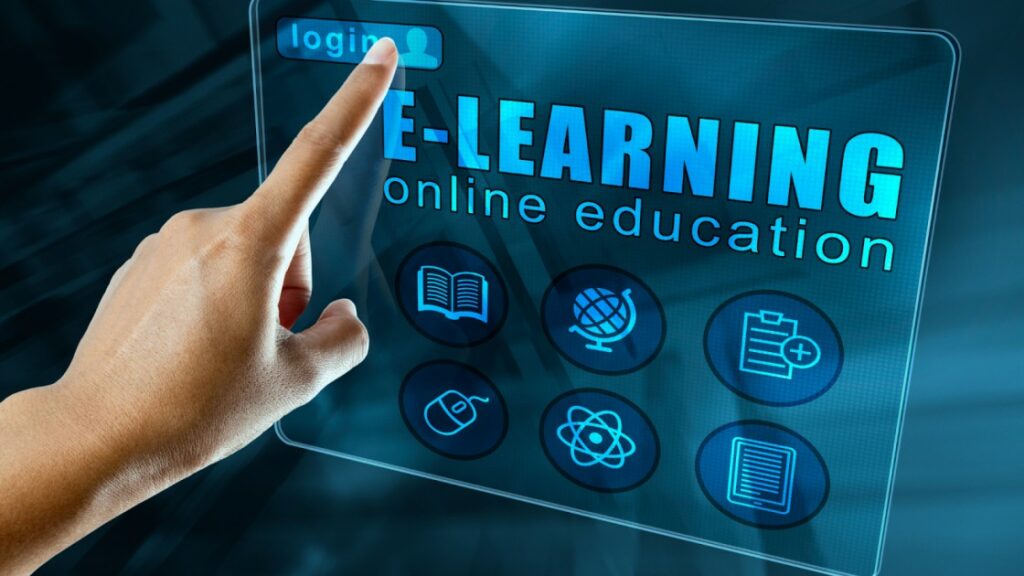The aftermath of COVID-19 on the online education industry
- August 25 2021
- Vaishak
Every aspect of our lives, from dining to shopping to entertainment to education, is now largely done over the internet. There is probably no other industry that has been more drastically affected than the education industry. Digital classrooms have replaced physical classrooms.
The Impact of COVID-19 on the Online Education Industry
The online education industry has taken off because of the pandemic. Between 2020 and 2024, the industry in India alone will be worth around $14.33 billion. But, what should the online education industry look forward to in the coming years when COVID-19 slowly starts to recede? Let’s find out in the rest of this blog.
Growth of quality, blended learning
While the initial response to online learning was that of resistance, over time, a majority of students and instructors will better understand and appreciate the benefits of multimedia content and collaborative learning over platforms such as Zoom, Adobe Connect, FaceTime, and Google Hangouts. In the years to come, we will see increased adoption of the concept of flipped classrooms (students are introduced to topics at home for them to practice at school). The main focus is to improve student engagement in the learning process.
Increased demand for skill-based learning
It is no secret that millions of employees have lost their jobs because of the pandemic. There are also lots of people who are trying to upskill themselves with the latest tech skills (Example: automation) and methodologies. They fear that they may become irrelevant in the near future. The demand for skill-based learning will grow, but it will be quite different from what we see now and what we have seen in the past. The demand for long campus-based programs will be replaced by short courses, micro-credentials, experiential learning, and work-based learning certifications. Employers will also increasingly ask candidates for certificates as evidence of skill and competence.
Refocusing on programs
After COVID-19, some programs are now more valuable than they were a couple of years ago. An easy example is Healthcare related programs. Other important programs include those in food and supply chain management. Ultra-specific programs like these will be more valuable than generic programs like international finance and marketing.
These programs should also emphasize soft skills of collaboration, teamwork, critical thinking, resilience, and adaptability. New approaches to work have also sprung up, and even these will demand new skills.
As companies adjust to remote work, new models of accountability, leadership, and human resource management will develop as a result. Educators need to constantly re-evaluate their curriculum and online teaching methods to strengthen their students with the skills and capabilities needed to improve their employability or start their own businesses.
Ending the digital divide
The sudden shift to online education has proven that not all students have access to the tools necessary to learn online. Some students may not have access to a laptop or a good enough smartphone, and others may not have the high-speed internet necessary for streaming video classes or attending live sessions. As a result of this disparity, we can expect measures from governments and other organizations to ensure everyone gets equal access to online education. Online education platforms have to upgrade to tech that will enable students to take classes even on low bandwidth.
Partnerships for success
Even large universities and schools will have to partner with specialists to keep up with the latest trends. This offers independent educators the opportunity to form long-standing partnerships with established institutions. Independent tutors with specific skills will play an instrumental role in developing best practices and building courses rapidly. This approach will also let institutions tap into new markets for working professionals.
The power of AI

When talking about anything futuristic, the term Artificial Intelligence (AI) will undoubtedly slip in. It has overcome its original reputation of being the destroyer of jobs. Today AI has experienced at-home integration courtesy of Siri, Alexa, Cortana, Google Assistant, and others. The tech is beginning to see adoption in eLearning as well. It is not only able to guide students through courses, but it can also help with learning predictions and progress-based personalization of courses. When building an AI model, the best practices and outcomes come from collecting quality ML training data. The broad-spectrum application of AI is limitless in the online education industry.
Microlearning
It is becoming increasingly unfeasible for students to learn huge chapters and multi-phase projects. In fact, students are finding more success when course components, including projects and lessons, are broken down into manageable chunks. These can be in the form of readable text, interactive activities, and video lectures.
Further reading: Microlearning – The new norm in online teaching
More Gamification
No matter what age group you belong to, it is always easier and more engaging to learn when it is fun. Hence, the need to gamify learning. The gamification of learning will continue to grow and diversify as long as eLearning stands strong, i.e., forever. Gamification has many benefits. First and foremost, it can ensure immediate application and interaction with the material. The high level of information retention ensures better grades and overall happiness with courses. In the coming years, gamification will undoubtedly be a central part of online education and offline classes as well.
Augmented and Virtual Reality
The talk around AR and VR has been around for years now, and after COVID-19 we are seeing widespread adoption of the tech in entertainment as well as other industries, including online education. With the impact of COVID-19, an increasing number of teachers have turned to VR to teach. Regardless of what the topics are, AR and VR enable tutors to fully engage immerse students in the subject matter. The tech can also supplement other learning methods. For example, combined with video or gamification-based learning methods, it can create a much more interesting learning experience. AR and VR tech is improving rapidly, and hardware is becoming more accessible to everyone. All this means more inclusion of the tech in the eLearning industry in the future.

Adaptive learning
This is a style of education where resources, activities, projects, and assignments are tailored to each individual student’s needs. COVID-19 has made teachers realize that not all students learn in the same way – everyone has their own preferences when it comes to learning methods too. Adaptive learning is the solution to this problem. In eLearning, this is implemented by way of established algorithms and assessments. As of now, the concept has been largely experimental as EdTech companies and educational institutions have spent years improving it and executing it on a small scale.
Further Reading: Course marketing in a pandemic: Tips and Strategies
Conclusion
COVID-19 has disrupted the education industry and given eLearning a much-needed push. But the fact remains that the industry is and will continue to grow as educators get more creative with the tech that is readily available to them. Advancements made in the field of entertainment will also eventually find their way into the EdTech business. Educators should always keep an eye out.
We at Learnyst are always one of the first to implement the latest technological upgrades to our platform. If we can find a way to use new tech to benefits our customers in creating high-engaging courses, we will do it. Our platform is helping thousands of entrepreneurs realize their dreams of becoming independent online educators or starting their own online academies. This is done by leveraging our robust content authoring tools and effectively marketing their online courses using SEO-optimized websites and mobile applications. To clarify your queries, drop a note to us!


Leave your thought here